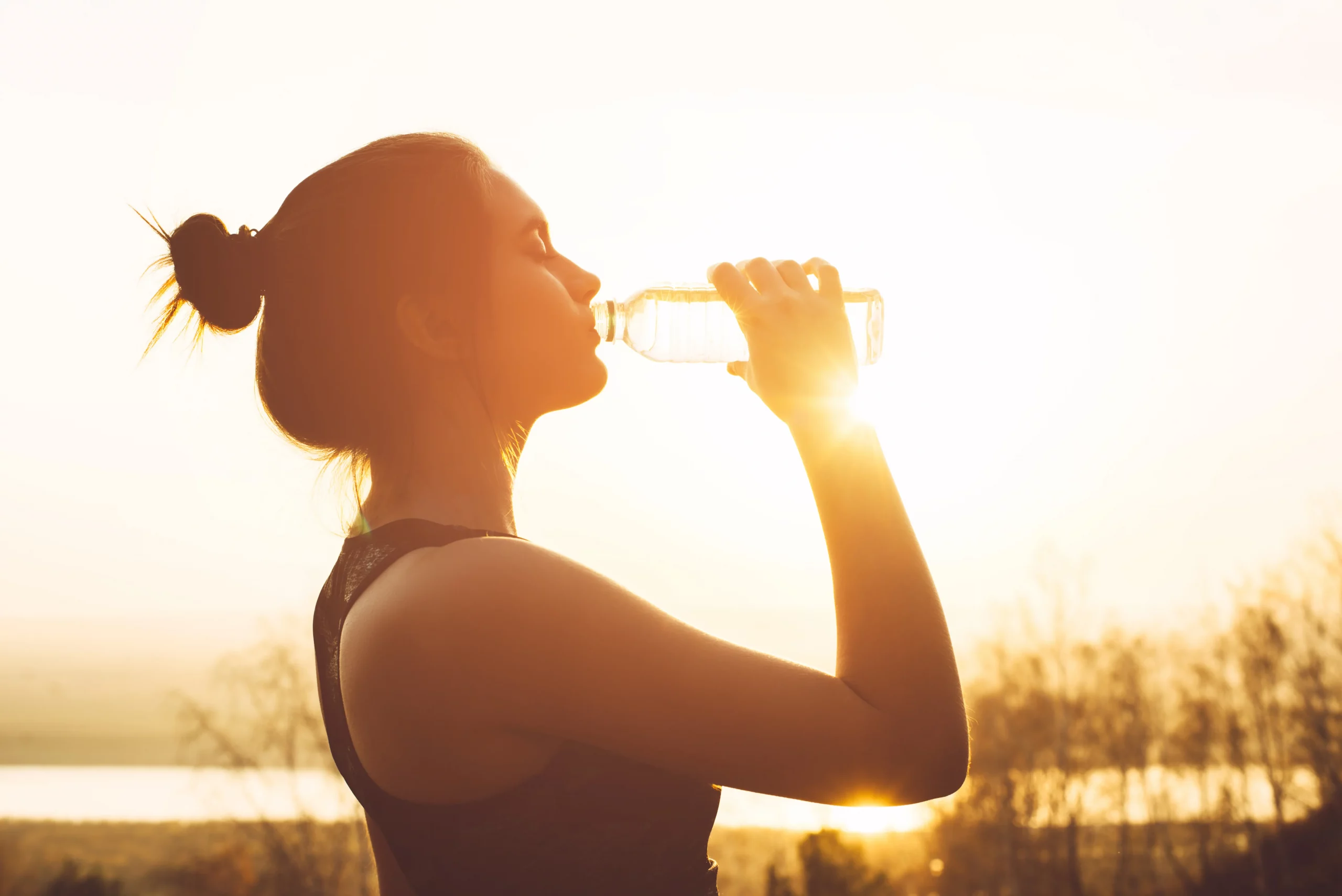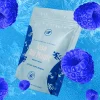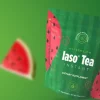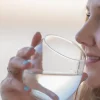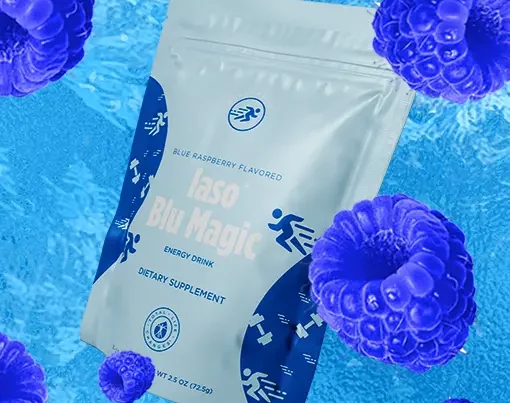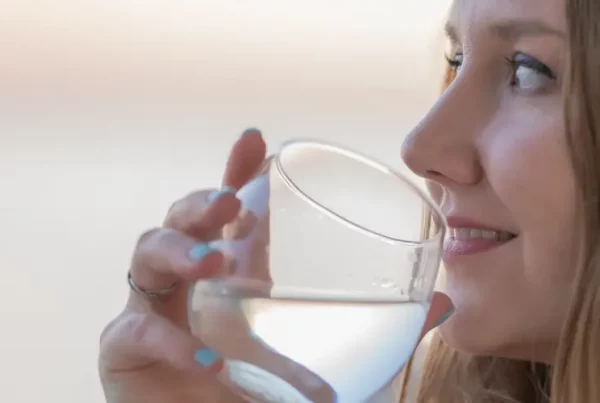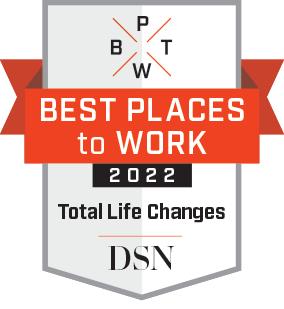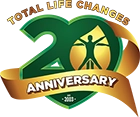Water, Soda, or Something Else? Your Guide to Healthy Hydration
Imagine this: It’s a hot summer day, and as part of The 15 Day Challenge, you’ve been exercising and sweating under the intensity of the scorching sun. You are thirsty. It’s time for some healthy hydration.
You step through the threshold of an air-conditioned convenience store, welcoming the cool, dry breeze on your face and body before you notice dozens of brightly lit refrigerated shelves packed with colorful beverages.
Which drink should you choose?
There’s an advertisement on the television mounted on the wall nearby showing a sweaty athlete gulping down a colorful sports drink touting electrolytes, while an attractive sticker display adorns one of the refrigerated windows showing hip, in-shape people chugging a sugary soda. The beer cans look frosty. There is no shortage of bottled water lining the shelves—plain, carbonated, and even caffeinated.
With so many options, what should you pick?
It’s a Top-Seller, so Why Not Grab a Soda (or Pop)?

In terms of popularity, soda is second only to water. According to Statista.com, in 2021, carbonated soft drinks comprised roughly 19% of all non-alcoholic beverages consumed in the United States (Ridder, 2022).
Soft drinks are flavorful, bubbly, and water-rich, but they are also acidic. Acid can be destructive to tooth enamel, leading to cavities and dental erosion (Cheng et al., 2009).
Moreover, many sodas contain high fructose corn syrup. Studies have shown that high fructose corn syrup increases your appetite, promotes obesity, contributes to diabetes and inflammation, and can even cause fibrosis or cirrhosis (scarring) of the liver (Team, W., 2021).
Another drawback of soda is that it tends to be high in calories, which can work against a weight-loss program. Diet or zero-sugar sodas, on the other hand, are typically low-calorie or even calorie-free because they substitute alternative sweeteners (typically artificially created) for high fructose corn syrup. Even these drinks have high acidity, however, which can lead to tooth decay.
Although soda is a popular choice, especially in the U.S., it is not the healthiest way to hydrate.
Are Sports Drinks Considered Healthy Hydration?

Sweating is one way your body keeps itself cool. When you sweat, you lose water and some electrolytes, including sodium and small amounts of potassium, magnesium, chloride, and calcium (Shrimanker & Bhattarai, 2022).
Sports drinks, which contain electrolytes, are intended to help you rehydrate after high-intensity exercise lasting an hour or more (Sports drinks, 2019).
Some sports drinks also contain large quantities of carbohydrates to help adult athletes engaged in intense, lengthy workouts replenish some of what was lost. Carbohydrates are important because your body converts them into glucose, which it uses to fuel your cells (Carbohydrates, n.d.).
When considering high-intensity workouts, Mitch Kanter (PhD) wrote that carbohydrates are “the only macronutrient that can be broken down rapidly enough to provide energy during periods of high-intensity exercise” (Kanter, M., 2017).
Outside of their intended use, however, these carb-loaded sports drinks may not be as beneficial. A study of more than 4,100 females and 3,400 males over seven years found a link between frequent sports beverage consumption and obesity, especially in boys (Sports drinks 2019).
There are lower-carb, artificially sweetened sports drinks on the market, though, which can replenish electrolytes. According to registered dietitian Kate Patton (MEd, RD, CCSD, LD), these drinks may be useful if you are a naturally heavy sweater or you are looking to rehydrate after you’ve been sick (Electrolyte drinks: Beneficial or not?, 2019).
Before choosing a sports drink, consider what you intend to use it for and if it is the healthiest option for that use. There are also other ways to replenish electrolytes, including drinks. Read this helpful article by Scripps for more information.
Beer vs. the Battle Against Thirst

A frosty beer may seem like a pleasant solution to your thirst, but alcohol is a diuretic, which means it can lead to dehydration by causing you to urinate more and lose more fluids (Hangovers, n.d.) Alcohol can also impair your coordination and impact your mood and behavior. For these reasons alone, there are better ways to rehydrate.
Is Non-Alcoholic Beer Bad?
Actually, non-alcoholic beer might not be a bad choice unless you are pregnant or breastfeeding.
According to sports nutritionist Tamar Kane, “Non-alcoholic beers could serve as a complementary aid in the athlete’s tool belt as a way to increase fluid intake, especially for those who do not like drinking plain water, sports drinks, or who are exercising for shorter durations” (Graber-Stiehl, I., 2018).
One frequently cited benefit of beer is that it contains plant-derived compounds called phenols. According to Appalachian State University’s David Nieman, phenols can regulate the genes that control inflammation. A study of marathon runners instructed to drink 1.5 liters of non-alcoholic beer per day found that white blood cell activity, which indicates the presence of inflammation, fell by 20% (Graber-Stiehl, I., 2018).
Moreover, research has shown that consuming 0.7 L of non-alcoholic beer before exercise could help your body maintain blood electrolyte homeostasis during exercise (Castro-Sepulveda, M., et al., 2016). Basically, this means non-alcoholic beer can help your body stay in a hydrated state for longer than plain water.
A Word of Caution
Non-alcoholic beer is not for everyone. Just like with alcoholic beverages, it is recommended that women who are pregnant or nursing avoid consuming non-alcoholic beer. Data has shown that some of these drinks may actually contain more alcohol than the labels suggest. A study by Motherisk found that 29% of the non-alcoholic beverages they studied did, in fact, have alcohol in them, with some brands claiming to have 0.0% alcohol concentration actually containing levels of up to 1.8% (Adiong, J. P. et al., 2014). This means that although the label may claim your beer is alcohol-free, you may still be exposed to alcohol.
Another thing to consider is non-alcoholic beer’s carb content. Although typically containing fewer carbs than their alcoholic counterparts, non-alcoholic beer still contains carbs which may not be welcome for those who are calorie conscious (Fooddata Central Search Results, n.d.).
At the end of the day, non-alcoholic beer is simply not for everyone. Pregnant and nursing women are recommended to avoid these drinks because they can still contain alcohol despite the claims on their labels. For others, however, it may not be the worst thing you can consume before a workout. When non-alcoholic beer is used as a complement to water, it may not be the worst way to rehydrate after a workout either; in fact, unless they need to quickly replenish carbs (this is where sports drinks tend to shine), Olympians have been using non-alcoholic beer to recover and relax after competitions. Learn more about that here!
For Healthy Hydration Water Is a Clear Winner (Pun Intended)

Water is essential to survival. Humans can typically last only about three days without it, which means severe dehydration is not only dangerous but can be deadly.
Did you know that 50–60% of our bodies are made up of water? It’s vital to maintaining your body’s internal temperature and keeping your cells alive (Zahmak, M., 2013). In fact, every cell, tissue, and organ in your body requires water to function (How much water do you need to stay healthy?, 2022).
When it comes to healthy hydration, water is calorie-free and, for the most part, easily accessible. It’s important to drink water, but you can also help replenish your body by consuming a variety of foods that contain it (Water, n.d.).
Also, did you know that water helps with digestion? According to Michael F. Picco (M.D.), “Water is vital for good health. Water and other drinks help break down food so that your body can take in (absorb) the nutrients” (Picco, M., 2022).
It’s a great way to go, but water isn’t perfect.
Water Has One Notable Drawback: A Lack of Electrolytes
Elderly people and athletes are more prone to losing electrolytes. If you are doing intense workouts and sweating away your electrolytes, water may fall short of adequate hydration. In that case, a sports drink may have its place, but you may also be able to replenish electrolytes by complementing your water with a salty snack like mixed nuts (Do you need an electrolyte drink?, 2021).
Not only does water lack electrolytes, but in extreme cases, you can also even dilute the sodium in your bloodstream in a condition called “hyponatremia” or “water toxicity.” Hyponatremia occurs when the amount of fluid you’ve taken in overwhelms your kidneys’ ability to flush it out (through urination). Although rare, hyponatremia is a serious condition that can be fatal (How much water do you need to stay healthy?, 2022).
Despite these drawbacks, water is still, generally speaking, a great pick when it comes to healthy hydration.
Sparkling Water or Plain Water… Does It Matter?
No. Whether you prefer sparkling or plain water, water is just a great choice for your healthy hydration.
According to Harvard, unsweetened sparkling water is safe to drink (Water, n.d.). And the Cleveland Clinic says sparkling water, including sugar-free seltzer and mineral water, is just as hydrating as regular water (Is sparkling water good or bad for you?, 2022).
Try to avoid tonic water, though, which includes sugar, high-fructose corn syrup, and other ingredients that can adversely affect your health.
If you avoid the sugary variety, sparkling water could be a refreshing alternative to soda. The carbonation may make you feel fuller and help with indigestion (Is sparkling water good or bad for you?, 2022).
What About Caffeinated Water?
According to Katherine Zeratsky (R.D., L.D.), caffeinated drinks may have a mild diuretic effect, which can increase urination, but they do not appear to increase the risk of dehydration.
However, caffeine can negatively affect some people, causing headaches or insomnia. More alarmingly, some studies suggest that caffeine can increase a pregnant woman’s risk for preterm birth or miscarriage (Zeratsky, K., 2020).
Caffeinated water may give you a boost, but if you are caffeine-sensitive or pregnant, plain water is a better option.
Conclusion
Water is typically the way to go for your healthy hydration, but Sports Drinks have their place, and non-alcoholic beer may not be so bad.

Water isn’t necessarily a perfect thirst-quenching solution because it does have some drawbacks, like a lack of electrolytes. But generally speaking, water is usually the best way to go.
If you are an adult engaging in a strenuous workout lasting an hour or more, a carb-loaded sports drink with electrolytes may help you replenish the carbs your body burned for energy while restoring some of the sodium that was lost to sweat. Be careful with these, however, because outside of their intended use, they may not be so beneficial. In fact, sports drinks have been linked to obesity (Sports drinks, 2019).
Non-alcoholic beer as a complement to water isn’t necessarily a bad way to rehydrate. One benefit of non-alcoholic beer is that it contains inflammation-fighting phenols, but it does lack electrolytes.
Moreover, non-alcoholic beer typically has fewer carbs than sugar-rich sports drinks. This lack of carbs makes it less than ideal for quick rehydration after strenuous workouts. However, in cases where you don’t need to replenish your energy quickly, it may not be a bad option to pair with your water. On the other hand, if your goal is to lose weight, the carbs found in non-alcoholic beer may be a less than desirable option for your rehydration.
Healthy Hydration: Our Verdict
Sports drinks and non-alcoholic beer may have their place, but water is typically your best choice, while it’s best to leave the soft drinks at the store.
Not only is water necessary for our bodies to function, it’s also a key component of a healthy lifestyle.
Water is also an important pillar of programs like The 15 Day Challenge, designed to motivate you to build healthier habits. In fact, water is a vital component for all three steps of the challenge!
The 15 Day Challenge involves staying hydrated, considering healthier food choices (water helps with digestion (Picco, M., 2022)!), and moving for 30 minutes per day (water rehydrates!), helping you build healthier habits 15 days at a time.
Try using water to replenish your body after your daily exercise! Instead of reaching for soft drinks or junk food, consider adding more water-rich fruits and vegetables to your diet to help you with your healthy hydration. And if you need to replenish electrolytes, consider pairing your water with a healthy snack like mixed nuts.
Written By Gary Path, Senior Creative Content Writer
References:
- Adiong, J. P., Kim, E., Koren, G., & Bozzo, P. (2014, August). Consuming non-alcoholic beer and other beverages during pregnancy and breastfeeding. Canadian family physician Medecin de famille canadien. Retrieved October 13, 2022, from https://www.ncbi.nlm.nih.gov/pmc/articles/PMC4131961/
- Castro-Sepulveda, M., Johannsen, N., Astudillo, S., Jorquera, C., Álvarez, C., Zbinden-Foncea, H., & Ramírez-Campillo, R. (2016, June 7). Effects of beer, non-alcoholic beer and water consumption before exercise on fluid and electrolyte homeostasis in athletes. Nutrients. Retrieved October 13, 2022, from https://www.ncbi.nlm.nih.gov/pmc/articles/PMC4924186/
- Cheng, R., Yang, H., Shao, M.-ying, Hu, T., & Zhou, X.-dong. (2009, May). Dental erosion and severe tooth decay related to soft drinks: A case report and literature review. Journal of Zhejiang University. Science. B. Retrieved September 29, 2022, from https://www.ncbi.nlm.nih.gov/pmc/articles/PMC2676420/
- Cleveland Clinic Health Essentials. (2019, April 12). Electrolyte drinks: Beneficial or not? Cleveland Clinic Health Essentials. Retrieved October 13, 2022, from https://health.clevelandclinic.org/electrolyte-drinks-beneficial-or-not/
- Cleveland Clinic Health Essentials. (2022, June 29). Is sparkling water good or bad for you? Cleveland Clinic Health Essentials. Retrieved September 26, 2022, from https://health.clevelandclinic.org/is-sparkling-water-healthy/
- Do you need an electrolyte drink? Scripps Health. (2021, December 13). Retrieved September 27, 2022, from https://www.scripps.org/news_items/3988-when-to-pick-electrolyte-drinks-over-water
- Fooddata Central Search Results. FoodData Central. (n.d.). Retrieved October 13, 2022, from https://fdc.nal.usda.gov/fdc-app.html#/food-details/174863/nutrients
- Graber-Stiehl, I. (2018, February 24). Olympians are using nonalcoholic beer as recovery drinks. here’s the science. NPR. Retrieved September 27, 2022, from https://www.npr.org/sections/thesalt/2018/02/24/588417922/olympians-are-using-non-alcoholic-beer-as-recovery-drinks-heres-the-science
- Kanter, M. (2017, October 21). High-quality carbohydrates and physical performance: Expert panel report. Nutrition today. Retrieved October 13, 2022, from https://www.ncbi.nlm.nih.gov/pmc/articles/PMC5794245/
- Mayo Foundation for Medical Education and Research. (2022, October 12). How much water do you need to stay healthy? Mayo Clinic. Retrieved October 13, 2022, from https://www.mayoclinic.org/healthy-lifestyle/nutrition-and-healthy-eating/in-depth/water/art-20044256
- Picco, M. (2022, May 25). Water after meals: Does it disturb digestion? Mayo Clinic. Retrieved September 27, 2022, from https://www.mayoclinic.org/healthy-lifestyle/nutrition-and-healthy-eating/expert-answers/digestion/faq-20058348
- Ridder M. (2022, January 13). Consumption share of beverages in the United States in 2021, by segment. Statista. Retrieved November 30, 2022, from https://www.statista.com/statistics/387199/us-consumption-share-of-beverages-by-segment/
- Shrimanker, I., & Bhattarai, S. (2022, July 25). Electrolytes – statpearls – NCBI bookshelf. Electrolytes. Retrieved September 27, 2022, from https://www.ncbi.nlm.nih.gov/books/NBK541123/
- Sports Drinks. Hsph.harvard.edu. (n.d.). Retrieved September 26, 2022, from https://www.hsph.harvard.edu/nutritionsource/sports-drinks/
- Team, W. (2021, December 20). Avoid the hidden dangers of high fructose corn syrup. Cleveland Clinic Health Essentials. Retrieved September 27, 2022, from https://health.clevelandclinic.org/avoid-the-hidden-dangers-of-high-fructose-corn-syrup-video/
- U.S. Department of Health and Human Services. (n.d.). Hangovers. National Institute on Alcohol Abuse and Alcoholism. Retrieved September 26, 2022, from https://www.niaaa.nih.gov/publications/brochures-and-fact-sheets/hangovers
- U.S. National Library of Medicine. (n.d.). Carbohydrates. MedlinePlus. Retrieved October 13, 2022, from https://medlineplus.gov/carbohydrates.html
- Water. Hsph.harvard.edu. (n.d.). Retrieved September 26, 2022, from https://www.hsph.harvard.edu/nutritionsource/water/
- Zahmak, M. (2013, July 2). The importance of Hydration. Media Relations. Retrieved October 18, 2022, from https://www.wku.edu/news/articles/index.php?view=article&articleid=2330
- Zeratsky, K. (2020, August 27). The myth about caffeine and dehydration. Mayo Clinic. Retrieved September 26, 2022, from https://www.mayoclinic.org/healthy-lifestyle/nutrition-and-healthy-eating/expert-answers/caffeinated-drinks/faq-20057965



